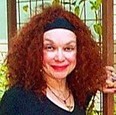Maybe if it’s “all in your head,” it’s in your brain chemistry
We women have spent so long and worked so hard for equality in rights, in education, and at work, that it may actually be hard to talk about how we are different.
The World Health Organization has been working on this, and knows a lot about what is going on. Illnesses of the mind, problems with thinking and feeling and living, are only identified by doctors less than half the time. Three out of five people who have this kind of problem wait less than a year before seeing a doctor. This is true of both sexes.
But it is hard to find ways to get people to really believe that it is not possible to fix a problem until you admit that you have one.
Depression is twice as common in women as it is in men. It is actually on its way to becoming the second leading cause of inability to work around the globe.
Various kinds of nervousness and anxiety disorders are more prevalent in women, too.
Asking for treatment is the first step. Yes it is tough, but all providers seem to know more about how to recognize this than they did not long ago. There are medically specialized providers — psychiatrists like me who can give medications, and look at what is going on chemically, offering alternative treatments, too. There are psychologists, who do testing and psychotherapy — a specialized kind of talking that can help change people’s brain chemistry somewhat, too.
I just wish people — especially women — were not so reluctant as they often are to tell a professional what is wrong. We are not interested in “labeling” people, nor in trying to force people to do what they do not want to do.
Women are more often victims of violence than men. They need to discuss this with the professionals who take care of them.
I am always just a little flattered when patients tell me I am easy to talk to, or that my being a woman myself makes things easier.
Sometimes people, especially women, wonder if there is a way to be protected against anxiety and depression. It seems as if people who have some control over what they do in life, and the ability to make some decisions for themselves about what they want to do in life — especially when they have to react to the serious problems that life can and does bring.
We know that support from family, friends — and professionals who care — is precious.
The women’s movement of the 60’s has become something more mature. In the 90’s we could talk about the “empowerment” of women. Now we are looking at more possibilities for women to grow more as whole people, to become more intelligent and strong than ever in history.
Practicing Medicine Since 1981
In her medical career, she has studied in Europe and Canada as well as the USA. She has attended specialty training beyond medical school in the fields of general surgery, neurology and neurosurgery and psychiatry (specializing in psychopharmacology).
Experienced In Many Situations
She has worked in a variety of positions, including:
Fireman/EMT
Medical school professor
General and Orthopedic surgeon
Brain surgeon
Army Medical Corps psychiatrist
Prison psychiatrist
Community Mental Health Center staff
Consultant to a major transplant hospital
Drug researcher
“Whatever It Takes!”
She currently has her own indepenent clinic in San Diego where she is concentrating on what she calls Mind/Body medicine — or Integrative Medicine. Her practice is cash-only, doesn’t accept insurance or government payments, and she operates on the concierge, or “private doctor” practice model to give her patients the absolute best quality of care and the highest level of confidentiality.
Dr. Goldstein’s philosophy is “Whatever It Takes!” Her goal is to do everything possible to solve whatever problem she is presented. This includes seeing patients as quickly as possible — not making them wait weeks for an appointment. This includes making appointments days, nights, weekends or holidays. This includes making house-calls. And it includes using the best, most innovative treatments available — most of which are unknown to standard, mainstream doctors.
Her focus is on transitioning patients away from prescription drugs and onto natural substances. She is also a master practitioner of Emotional Freedom Technique, a powerful and dynamic form of energy psychology that usually brings quicker results than traditional psychotherapy.

Post new comment
Please Register or Login to post new comment.